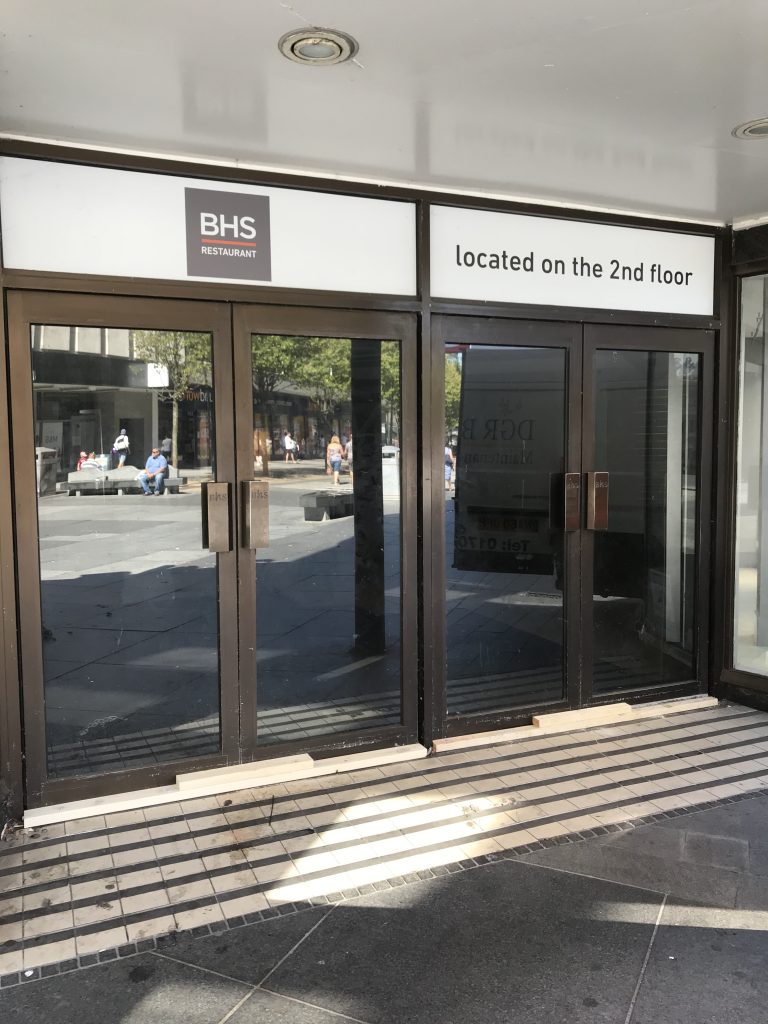Commercial Property Re-active & Emergency Maintenance and Repairs
Got an urgent property repair?
Call us now to arrange for a property expert to help!
What is Re-active Maintenance?
Re-active maintenance is the process of repairing damaged, ineffective or failed equipment, which could have been caused by weather damage, vandalism or general wear and tear.
The primary focus in re-active maintenance is to make an area safe initially, ensuring that the equipment will not cause any serious harm or danger to lives, especially where the damage has been caused by serious weather or vandalism.
Once this has been done, the equipment will then be repaired or replaced.
DGR Building Maintenance provide a range of services to cover all of your emergency re-active property requirements, and provide assistance to businesses across the UK in the commercial, industrial, hospitality and retail sectors.
What Re-active Maintenance services do DGR offer?
DGR is a multi-skilled business that can assist you with a range of re-active maintenance services. Re-active maintenance usually falls under two separate categories:
- The first is an Emergency Call Out, which is one where the issue is causing serious problems and may cause injury to lives or further damage to property.
- The second would be considered as a Normal Repair Call Out and is where a piece of equipment or element of property which may be causing a problem but presents no immediate danger to life and property.
Examples of an emergency call out for Re-Active Maintenance
- Storm damage - i.e. damage caused by serious winds for example roof damage (falling tiles or slates, damaged metal roofing), fallen trees and broken fences, loose guttering and fascias, broken windows and in more serious cases damage to property structures.
- Flood & water damage - i.e. flooding through severe rain, rivers / streams overflowing and water damage caused by leaking water tanks and burst pipes.
- Fire damage - usually caused by electrical failures within a property.
- Vandalism - where damage is caused to a property, usually in the form of broken windows and doors or fire damage.
- Structural damage - collapsed walls.
Examples of non-urgent Re-active Maintenance call outs
- Vandalism - for example, graffiti or fly-tipping.
- Electrical or Water loss - loss of power or water to a section of the property which is non-essential and not causing any serious hazards.
- Lighting - for example, broken light bulbs.
- Minor structural issues - broken plaster, damaged walls, decorative, mold etc.
- Road, car-park & pavement - consider potholes and uneven surfaces caused by tarmac damage.
- Plumbing, Electrical or Heating failure.
- Negligence - accidental damage caused by staff.
What are the disadvantages of Re-Active Maintenance and how can it be prevented?
Having to make a call out, whether that is an emergency or a non-urgent one, can be problematic due to:
- Cost - usually, a none scheduled call out can be expensive and one which has not been budgeted for, causing un-necessary stress and strain on finances.
- Time - unfortunately, when an emergency occurs time plays a major factor. Initially, the time it takes to find and call out a company who can help with the repair, and then assuming they can attend site quickly, the time it will take to make the repair.
- Indirect costs - For example, the loss of business whilst the repair is occurring, the cost of having to pay staff who may not be able to attend premises until the repairs are resolved, plus a reputation loss.
- The knock-on costs - when something is damaged this can have a knock-on effect, for example a damaged roof can cause internal damage within your property.
Ultimately, a re-active maintenance requirement should be only caused when the issue is caused by something outside of your control. Correctly maintaining property through Planned & Preventative Maintenance is the safest and most cost effective way to ensure your building is safe and will minimise the need for an urgent or emergency call out.
Where do we cover?
DGR Building Maintenance provide nationwide coverage for commercial re-active and emergency property maintenance including:
- Merseyside: Liverpool, Birkenhead, St Helens, Southport, Wallasey, Bebington, Bootle, Crosby, Kirkby, Prescot
- Lancashire: Blackpool, Blackburn, Preston, Burnley, Bamber Bridge, Lancaster, Lytham St Anne's, Leyland, Chorley, Fulwood
- Greater Manchester: Manchester, Bolton, Sale, Rochdale, Stockport, Salford, Wigan, Oldham, Bury, Leigh
- Cheshire: Warrington, Chester, Crewe, Runcorn, Widnes, Ellesmere Port, Macclesfield, Northwich, Wilmslow, Winsford
- Staffordshire: Stoke-on-Trent, Tamworth, Newcastle-under-Lyme, Burton-upon-Trent, Stafford, Lichfield, Cannock, Burntwood, Kidsgrove, Rugeley
- West Midlands: Birmingham, Coventry, Wolverhampton, Solihull, Sutton Coldfield, Dudley, West Bromwich, Walsall, Stourbridge, Halesowen
- North Wales: Wrexham, Rhyl, Colwyn Bay, Llandudno, Bangor, Caernafon, Betws-y-Coed, Portmeirion, Holyhead, Abersoch



